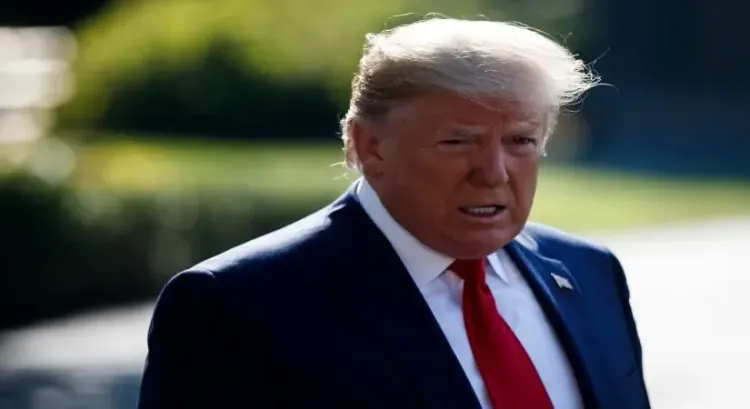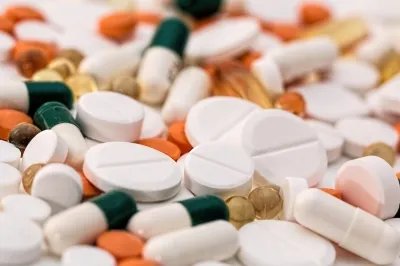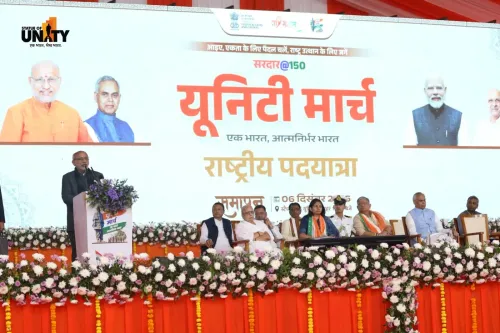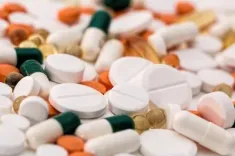Could Medicine Import Tariffs Soar to 250%? Trump Speaks Out

Synopsis
Key Takeaways
- Trump's tariffs could reach 250% on pharmaceuticals.
- Initial tariffs will start lower, increasing over time.
- India's response highlights tensions in trade relations.
- Domestic manufacturing is a key goal of these tariffs.
- Potential implications for drug prices and healthcare access.
New Delhi, Aug 5 (NationPress) US President Donald Trump stated on Tuesday that new tariffs on imported pharmaceuticals might eventually escalate to as much as 250 percent, as part of his initiative to revitalize drug manufacturing within the United States.
During an interview with CNBC, Trump mentioned that these tariffs would commence at a lower percentage—though he did not disclose the exact amount—and would progressively rise over the next year to 18 months.
“We’ll be implementing (an) initial modest tariff on pharmaceuticals, but within a year to one-and-a-half years, it will reach 150 percent and ultimately rise to 250 percent because we want pharmaceuticals produced in our nation,” he stated.
Additionally, Trump indicated plans to impose tariffs on foreign semiconductors and chips “in the coming week,” without providing any further specifics.
This announcement follows Trump's ongoing threats of significant penalties against the pharmaceutical sector to encourage domestic production.
He has also recently urged major drug suppliers to drastically reduce their prices or face additional consequences.
These renewed tariff warnings coincide with Trump’s increasingly tough trade posture towards India. On Monday, he indicated he would substantially increase tariffs on New Delhi within 24 hours, adjusting the previously set 25 percent rate.
Trump accused India of purchasing substantial amounts of Russian oil and selling it for profit, asserting that it supports Moscow’s military efforts.
India has dismissed Trump’s claims, labeling them as “unjustified and unreasonable.”
The Ministry of External Affairs emphasized that India will take all necessary actions to protect its national interests and economic security.
In response, Russia has criticized Trump’s statements, deeming US pressure tactics as “illegitimate” and reaffirming India’s right to select its trade partners.
Kremlin spokesperson Dmitri Peskov reiterated that sovereign nations should independently determine their trading and economic alliances.










